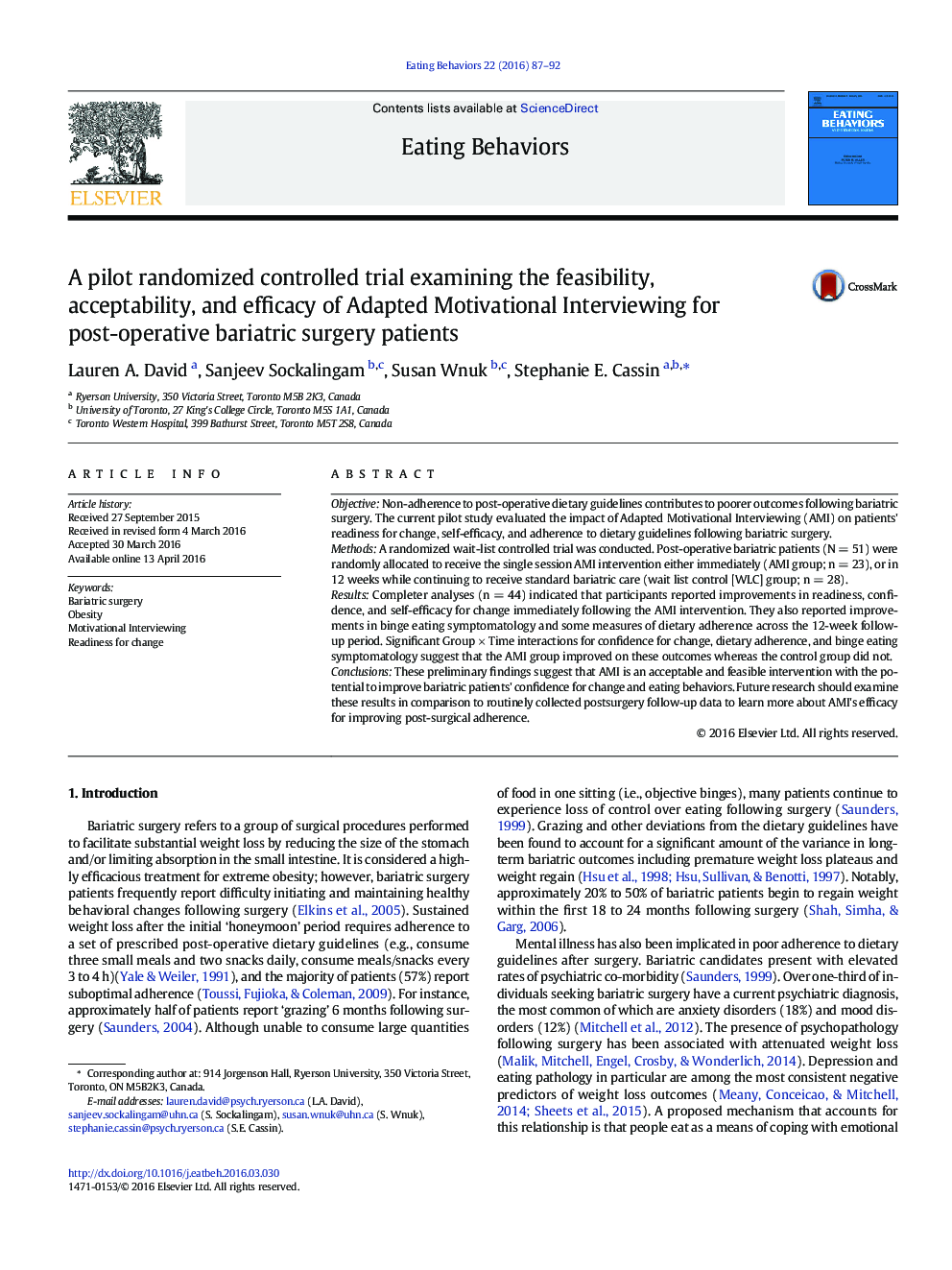| کد مقاله | کد نشریه | سال انتشار | مقاله انگلیسی | نسخه تمام متن |
|---|---|---|---|---|
| 906195 | 1472881 | 2016 | 6 صفحه PDF | دانلود رایگان |
• We examine Adapted Motivational Interviewing (AMI) for bariatric surgery patients.
• We assess changes in self-efficacy to initiate and sustain healthy dietary choices.
• We assess changes in eating and in adherence to post-surgical dietary guidelines.
• AMI is feasible to implement in bariatric programs and acceptable to patients.
• AMI improves patients' eating habits and confidence for dietary change.
ObjectiveNon-adherence to post-operative dietary guidelines contributes to poorer outcomes following bariatric surgery. The current pilot study evaluated the impact of Adapted Motivational Interviewing (AMI) on patients' readiness for change, self-efficacy, and adherence to dietary guidelines following bariatric surgery.MethodsA randomized wait-list controlled trial was conducted. Post-operative bariatric patients (N = 51) were randomly allocated to receive the single session AMI intervention either immediately (AMI group; n = 23), or in 12 weeks while continuing to receive standard bariatric care (wait list control [WLC] group; n = 28).ResultsCompleter analyses (n = 44) indicated that participants reported improvements in readiness, confidence, and self-efficacy for change immediately following the AMI intervention. They also reported improvements in binge eating symptomatology and some measures of dietary adherence across the 12-week follow-up period. Significant Group × Time interactions for confidence for change, dietary adherence, and binge eating symptomatology suggest that the AMI group improved on these outcomes whereas the control group did not.ConclusionsThese preliminary findings suggest that AMI is an acceptable and feasible intervention with the potential to improve bariatric patients' confidence for change and eating behaviors. Future research should examine these results in comparison to routinely collected postsurgery follow-up data to learn more about AMI's efficacy for improving post-surgical adherence.
Journal: Eating Behaviors - Volume 22, August 2016, Pages 87–92
